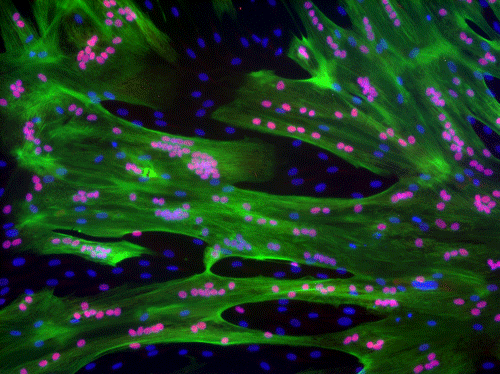Metabolism, Inflammation & Physical Activity (MIPA)
About this group
Group information
Research conducted in MIPA focuses on the influence of physical activity throughout the life course on health outcomes including biomarkers for inflammation and metabolic health. Exploring the role of dietary habits alongside physical activity is an integral part of projects performed in our research group. One line of research is to uncover pathophysiological mechanisms behind the age-related functional loss, including the putative role played by low-grade chronic inflammation or attenuated anabolic response to daily physical activity or dietary intake. Epidemiological and mechanistic links between physical activity level, dietary habits and functional aspects across groups of different ages with varying health status are scrutinized. Another line of research is developing interventions to determine the health benefits of physical activity and dietary habits. Research programs in MIPA are conducted in collaboration with national and international research groups. MIPA has extensive experience in the assessment of physiological variables, muscle mass, functional capacity, dietary intake and physical activity. Biological, morphological, cellular tools are also employed in combination with the use of in-vitro cell approaches.


Completed projects
- Dietary habits and physical activity for health and wellbeing
- Epidemilogical and molecular links between chronic inflammation, physical activity, diet and muscle mass in elderly
- Exercise therapy in facioscapulohumeral dystrophy - Integration of physical training in lifestyle to induce functional, tissue and quality of life benefits.
- How different types of hypoxia affect neuromuscular markers, metabolic stress and associated mechanisms during a 8 weeks hypertrophy strength training
- New dietary strategies addressing the specific needs of elderly population for an healthy ageing in Europe
- Physical activity and diabetes in young adults
- Physical activity, nutrition, inflammation and the metabolic syndrome in elderly: Epidemiology and in-vitro
- Physiological responses and adaptations to exercise
- The regenerative capacity of skeletal muscle in relation to aging and exercise
- TWH 65-70 A randomized controlled trial of health effects of training & dietary intervention in elderly women



